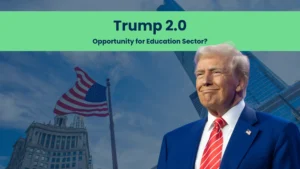India isn’t just a country of learners anymore — it’s a global education marketplace in motion.
Foreign universities are no longer just hosting Indian students abroad; they’re building campuses here, recruiting faculty locally, and co-developing programs with Indian partners.
Here are a few examples of this transformation:
- Deakin University (Australia): Operational since July 2024, offering postgraduate programs in Business Analytics and Cyber Security.
- University of Wollongong (Australia): Launched in November 2024 with courses in FinTech and Computing.
- Queen’s University Belfast (UK): The first Russell Group university to establish a campus in India.
- University of Southampton (UK): Set to open in August 2025, bringing globally recognized courses to Indian soil.
The UGC’s 2023 guidelines have made this expansion possible by giving foreign universities full autonomy to operate in India — a historic policy shift that’s turning India into a magnet for global education brands.
What’s Driving Foreign Universities to India?
- A Massive Learner Base:
India boasts a large student population, with over 315 million students across all levels of education, surpassing all other countries in the world. This vast learner base provides a strong foundation for educational growth and development in the country.
- Encouraging Government Policies
The National Education Policy (NEP) 2020 and University Grants Commission (UGC) regulations create an encouraging environment for foreign institutions to conduct operations in India. Additionally, initiatives like Digital India, Skill India, and Study in India are paving the way for international players to enter the Indian market with fewer regulatory bottlenecks.
- Growing Demand for Global Credentials
Many Indian students have a desire to pursue international degrees, but they are frequently held back due to the high cost of studying abroad. Establishing branch campuses or joint programs can cater to this growing demand in India, providing global exposure without the hefty financial constraints.
- Booming EdTech Ecosystem
India’s edtech ecosystem is rapidly expanding, valued at approximately USD 7.5 billion in 2024 and expected to reach USD 29 billion by 2030. From adaptive learning platforms to AI-powered assessments, the market is ripe for innovative solutions.
- Building Research Collaborations
The growing economy and tech hub status make India a key market for universities to build research collaborations and industry programs. By establishing a presence here, foreign universities can strengthen ties to talent and create partnerships with corporations.
- Internationalization of Indian Higher Education
Indian universities are also keen on improving their international reputation. Collaborating with overseas institutions allows them to boost their research capabilities, faculty exchange programs, and curriculum standards, which in turn facilitates mutual growth and long-term academic collaboration.
Rising Appeal for International Teaching Philosophies and Learning Styles
Indian parents and schools are showing interest in adopting global teaching techniques that prioritize creativity, critical thinking, and holistic learning over the traditional exam-centric system. More and more families are now looking for educational opportunities that prepare students for global citizenship and future-ready careers.
Some of the popular educational approaches include:
- IB (International Baccalaureate): Renowned for its inquiry-based, student-led methodology that fosters independent thinking and develops globally aware individuals
- Montessori & Reggio Emilia: Highly valued in early childhood education for promoting independence, curiosity, and experiential exploration through hands-on learning.
- Cambridge Assessment International Education (CAIE): Widely embraced by K–12 institutions for its flexible, skills-oriented curriculum and focus on analytical and reflective thinking.
At the same time, there is an increasing focus on learning styles that move beyond rote memorization, indicating a rising preference for education that is centered on student application. Classrooms that embrace AI-driven customization, flipped learning, and experiential teaching methods are increasingly prevalent, aligning well with the learner independence and competency-focused education.
Together, these trends make India’s evolving education ecosystem a perfect match for global institutions entering the country.
Time to Unlock India’s Education Evolution?
India’s educational landscape is rapidly evolving, from rote learning to critical thinking, and traditional classrooms to blended learning. With favorable policies, digital advancements, and an increasingly global outlook among Indian students, India is well positioned to attract a greater number of international institutions and specialized programs in the coming years.
If you’re a global education provider or EdTech company looking to tap into India’s booming education sector, now is the time to enter. Partner with indiamarketentry.com to confidently connect, strategize, and scale your educational venture.
——————————————————————————————————————–





